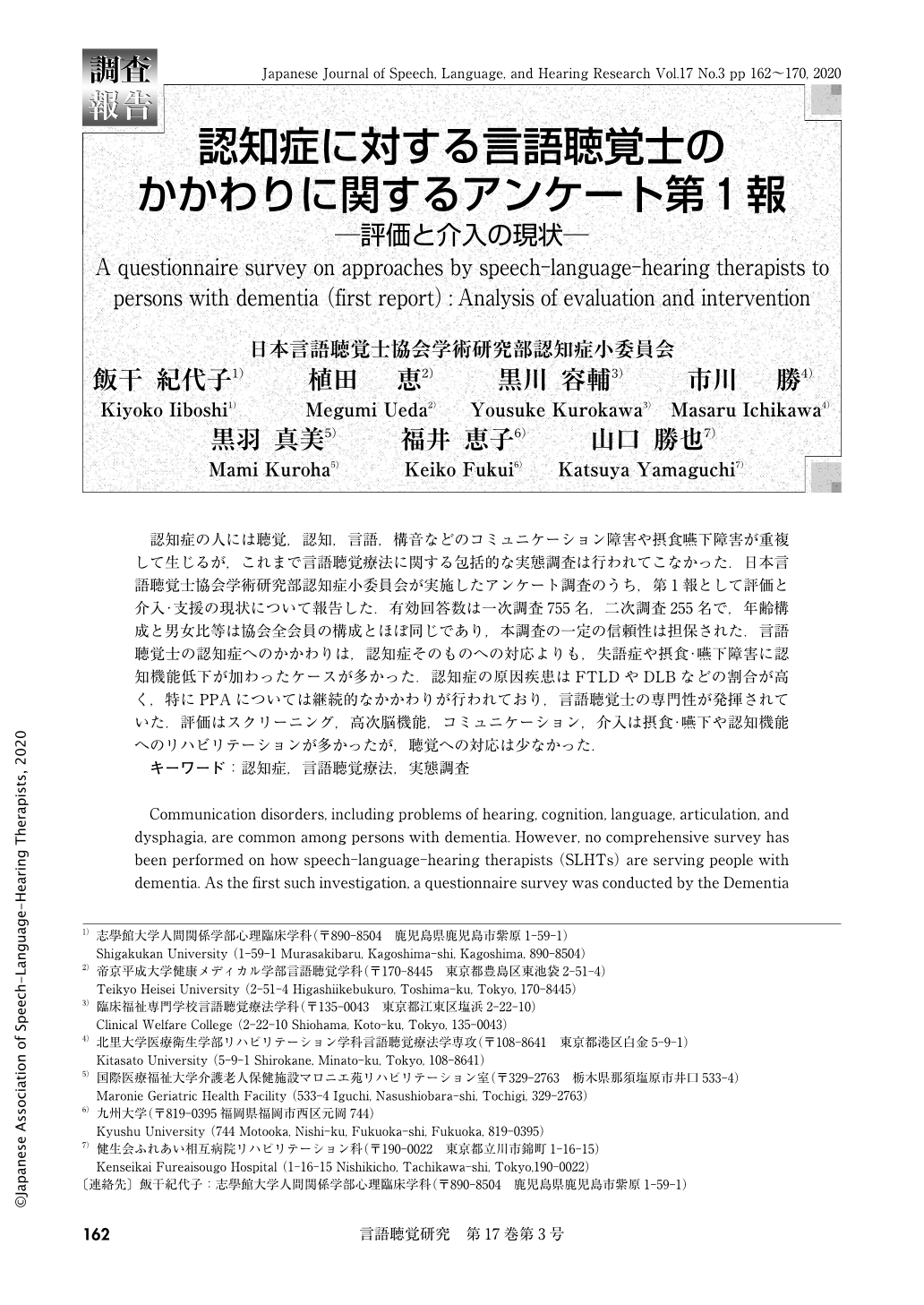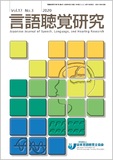Japanese
English
- 有料閲覧
- Abstract 文献概要
- 1ページ目 Look Inside
- 参考文献 Reference
認知症の人には聴覚,認知,言語,構音などのコミュニケーション障害や摂食嚥下障害が重複して生じるが,これまで言語聴覚療法に関する包括的な実態調査は行われてこなかった.日本言語聴覚士協会学術研究部認知症小委員会が実施したアンケート調査のうち,第1報として評価と介入・支援の現状について報告した.有効回答数は一次調査755名,二次調査255名で,年齢構成と男女比等は協会全会員の構成とほぼ同じであり,本調査の一定の信頼性は担保された.言語聴覚士の認知症へのかかわりは,認知症そのものへの対応よりも,失語症や摂食・嚥下障害に認知機能低下が加わったケースが多かった.認知症の原因疾患はFTLDやDLBなどの割合が高く,特にPPAについては継続的なかかわりが行われており,言語聴覚士の専門性が発揮されていた.評価はスクリーニング,高次脳機能,コミュニケーション,介入は摂食・嚥下や認知機能へのリハビリテーションが多かったが,聴覚への対応は少なかった.
Communication disorders, including problems of hearing, cognition, language, articulation, and dysphagia, are common among persons with dementia. However, no comprehensive survey has been performed on how speech-language-hearing therapists (SLHTs) are serving people with dementia. As the first such investigation, a questionnaire survey was conducted by the Dementia Subcommittee of the Academic Study Department, at the Japanese Association of Speech-Language-Hearing Therapists (JAS). This survey comprises of three parts, we report on the analysis of evaluation and intervention by SLHTs in this paper. The number of respondents was 755 on part 1, and 255 on part 2. The age structure and the gender ratio of respondents were similar to those of JAS members, which indicates that the respondents constituted a representative sample. The results showed that SLHTs worked with patients with aphasia and dysphagia with cognitive decline more often than patients whose primary diagnosis was dementia itself. There were high ratios of frontotemporal lobar degeneration (FTLD) or dementia with Lewy bodies (DLB), and SLHTs were working with primary progressive aphasia (PPA) patients continuously. This shows SLHTs are able to provide services in line with their professional specialty. SLHTs frequently conducted screening and evaluation of higher brain function and communication and provided interventions for dysphagia and cognitive deficits. However, fewer SLHTs were found to address hearing problems.

Copyright © 2020, Japanese Association of Speech-Language-Hearing Therapists. All rights reserved.


